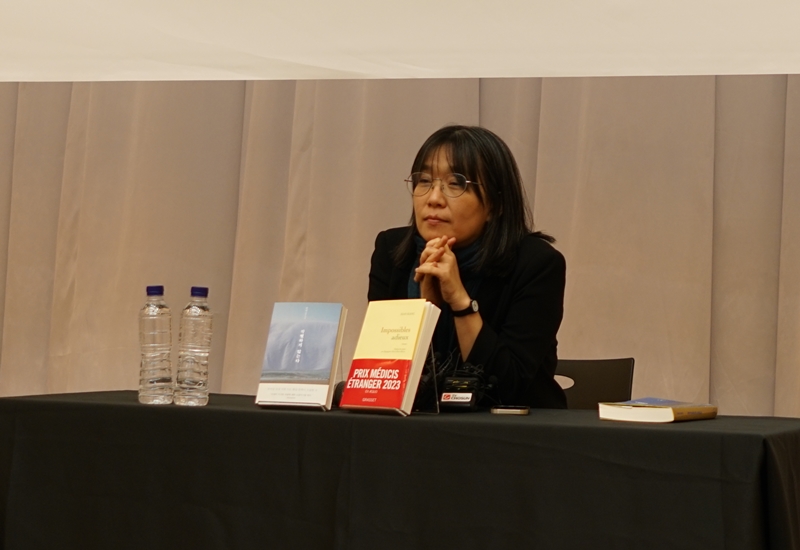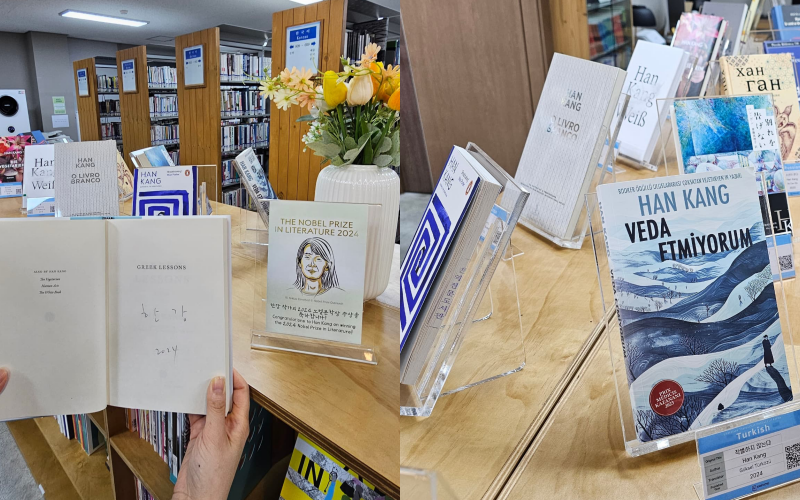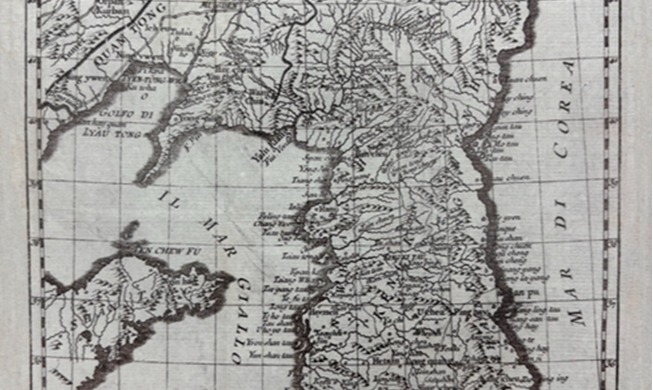- 한국어
- English
- 日本語
- 中文
- العربية
- Español
- Français
- Deutsch
- Pусский
- Tiếng Việt
- Indonesian

Author Han Kang, the nation's first winner of the Nobel Prize in Literature, in November last year speaks at a news conference held at Kobaco Hall in Seoul's Yangcheon-gu District. (Munhakdongne Publishing Group)
By Margareth Theresia
The nation's literary circle on Oct. 20 marked a historic milestone: Novelist Han Kang was named the country's first laureate of the Nobel Prize in Literature.
The Swedish Academy said she was selected for her "intense poetic prose that confronts historical traumas and exposes the fragility of human life."
Readers of Han's works often have something in common: an intense reverberation deep inside through her novels, which delicately portray the human mind, pain and healing. The depth of her works is why they evoke universal empathy even from readers abroad unfamiliar with Korean history.
At one Korean Cultural Center abroad, the author's books were stolen soon after they were displayed. In Germany and France, they have sold out and one was even adapted into a play.
Thus Han fever is gripping the world.
Debuting as a writer in 1993 with her short story "Red Anchor," she has steadily produced a body of work to emerge as a leading author of Korean literature.
"The Vegetarian," her most famous novel, drew global fame for exploring human nature and femininity. It earned her the 2016 Man Booker International Prize for fiction and catapulted her into global literary stardom.
According to the Literature Translation Institute (LTI) of Korea, Han's works have been published in 28 languages and 76 editions.

The Literature Translation Institute (LTI) of Korea on Oct. 21 announced that Digital Library in Seoul's Gangnam-gu District has opened a corner exclusively for author Han Kang's works. (LTI Korea's official Facebook page)
"The Vegetarian," Han's first work to win an international prize, debuted in 2007 in Korean. Now available in 23 languages including Vietnamese (2010) and Spanish (2013), it explores human nature and vegetables from a woman's perspective and evokes deep contemplation from readers.
"Human Acts" (2014) is set in the May 18 Gwangju Democratization Movement of 1980, covering both the incident and the people left behind. The book won Italy's Malaparte Prize after its translation into Italian and has been published in 18 languages.
The novel meticulously covers the movement's repercussions on people like young volunteers, academics, political prisoners and teens.
"I Do Not Bid Farewell" (2021), her latest work that describes the perspectives of three women on the Jeju April 3 Incident of 1948, won the French awards Emile Guimet Prize for Asian Literature this year and the Prix Medicis for foreign literature last year, further raising Han's global standing. Available in six languages, the novel will come out in English next year.
Aside from her award-winning books, Han's other works include "The White Book" (2016), a meditation on the author's sister who died two hours after birth. It also contains 65 prayers for Warsaw, which was destroyed during World War II as its residents fought the Nazis but was rebuilt after the conflict; and all "white things" in the world.
Shortlisted for the 2018 Man Booker International Prize and nominated for the Japan Translation Award, the book has been published in 14 languages.
"Greek Lessons" (2011) depicts a meeting between a woman who is becoming mute and a man who is losing his sight. With its English-language edition published last year and that in French in 2017, the novel gained much attention after being nominated for the Prix Medicis.
LTI Korea on Oct. 21 also announced its opening of a corner exclusively for Han's works at Digital Library in Seoul's Gangnam-gu District. Here, visitors with ID can read the writer's books translated into a number of languages.
Those who cannot visit this library can access Han's e-books or audiobooks on LTI Korea's official website (ltikorea.or.kr).
